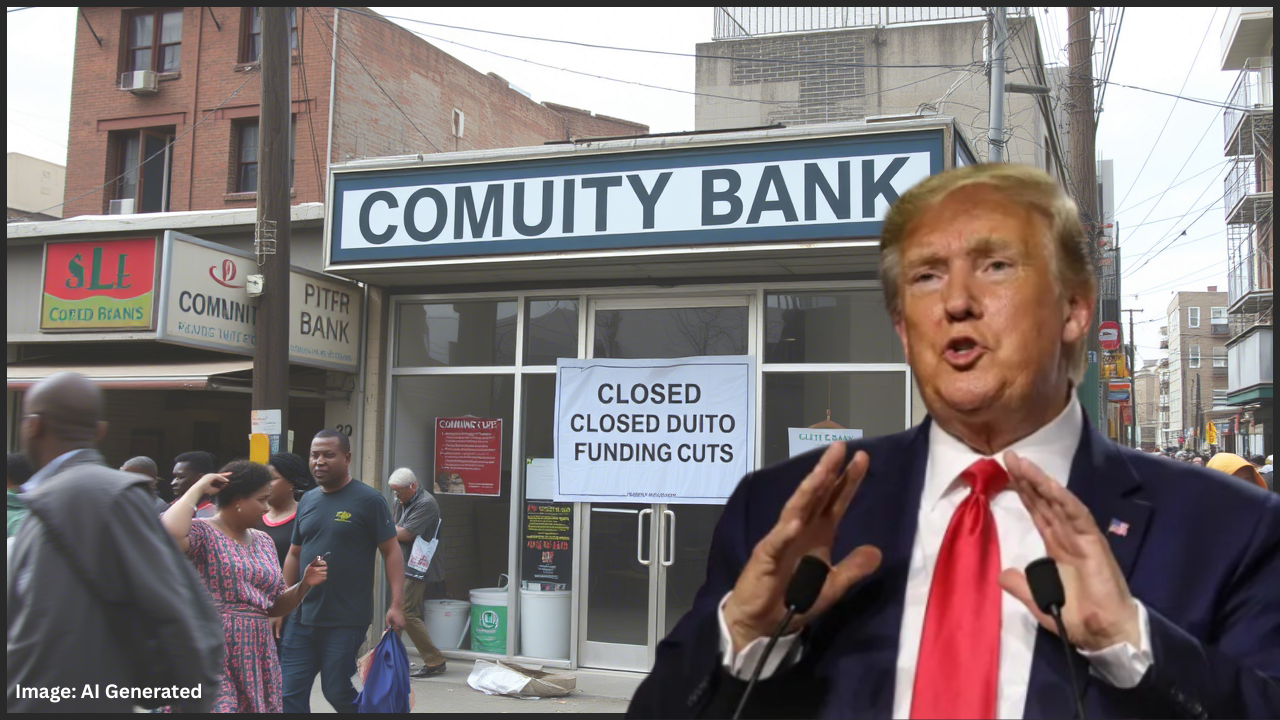Former President Donald Trump’s return to the White House in 2025 is already reshaping federal policy across a wide range of sectors. One particularly impactful area is community investment policy, especially changes related to the Community Reinvestment Act (CRA) and civil rights enforcement.
Originally passed in 1977, the CRA was designed to prevent redlining and ensure that banks and financial institutions meet the credit needs of all communities, especially low- and moderate-income neighborhoods. Over the years, it has become a crucial tool in fighting economic inequality. However, the Trump administration is now rolling back key updates to the act, raising widespread concern among advocates, community leaders, and financial watchdogs.
Quick Summary
- Trump’s administration plans to rescind the 2023 CRA Final Rule, which aimed to modernize and enforce stronger community investment obligations.
- The rollback of the “disparate impact” standard may significantly weaken civil rights protections in housing, lending, and employment.
- These changes could reduce accountability for financial institutions, especially in underserved and minority communities.
- Community Development Financial Institutions (CDFIs) and minority-focused financial services may see a decline in critical funding and support.
- Policy shifts could reverse years of progress in equity, affordable housing, and small business development.
What Was the 2023 CRA Final Rule?
In October 2023, a coalition of federal regulators—namely the Federal Reserve, FDIC, and OCC—finalized updates to the CRA for the first time in decades. These updates were intended to bring CRA enforcement into the 21st century by recognizing changes in banking practices, such as the rise of online and mobile banking.
Key objectives of the rule included:
- Closing loopholes that allowed banks to avoid investing in communities most in need.
- Introducing updated assessment metrics that reflected modern banking.
- Placing a renewed focus on supporting affordable housing, minority-owned small businesses, and community development initiatives.
This collaborative reform effort was widely praised as a balanced, bipartisan achievement. Learn more from the National Community Reinvestment Coalition (NCRC).
Why Is the Rule Being Repealed in 2025?
In March 2025, the Trump administration announced its intention to withdraw the 2023 CRA Final Rule. Officials argued that the revised regulations imposed unnecessary compliance costs and stifled lending flexibility for banks.
Yet many in the public and nonprofit sectors disagree. The National Community Reinvestment Coalition issued a strong statement criticizing the decision:
“The 2023 rule was the result of years of negotiation between banks, regulators, and community advocates. Scrapping it now undermines trust and endangers low-income neighborhoods.” — NCRC Statement
Critics also argue that repealing this rule opens the door for banks to return to selective investment practices that historically excluded poor and minority communities.
The Disparate Impact Rollback: What It Means
Another significant change is the Trump administration’s decision to eliminate the disparate impact legal doctrine. This rule allowed regulators and civil rights groups to challenge policies that result in discriminatory outcomes, even if those outcomes were unintentional.
What This Means:
- Impacts multiple industries including housing, financial services, and employment.
- Makes it more difficult to legally challenge practices that disproportionately harm protected groups.
- Weakens federal agencies’ abilities to enforce anti-discrimination laws.
The practical effect? If a bank’s mortgage algorithm ends up denying more loans to Black or Latino borrowers—even without explicit bias—it will now be harder to hold that bank accountable.
To understand more, read The Washington Post’s coverage.
How These Changes Could Affect You and Your Community
1. Fewer Community Investments from Banks
Without the updated CRA rule, many banks may no longer be required—or motivated—to invest in underserved neighborhoods. This can mean:
- Reduced construction of affordable housing units
- Fewer loans and grants for small businesses in disadvantaged areas
- A decline in local economic resilience and job creation
2. CDFIs May Struggle to Access Funds
Community Development Financial Institutions (CDFIs) play a vital role in delivering financial services to those not served by traditional banks. CRA obligations have historically incentivized large financial institutions to fund and support CDFIs.
With these requirements lifted, consequences may include:
- Cuts to funding pipelines that fuel minority entrepreneurship
- Reduced micro-lending in immigrant and refugee communities
- Scaling back of community financial education programs
See the Financial Times’ deep dive for more financial insights.
3. Harder to Fight Discrimination
Eliminating the disparate impact standard complicates efforts to tackle structural inequalities. Here’s how:
- Fair housing lawsuits will become harder to win without proof of intentional discrimination.
- AI-driven lending algorithms that reinforce bias will face less scrutiny.
- Federal agencies may be restricted in their enforcement capabilities.
What Can Communities and Professionals Do?
Stay Informed
Staying updated on policy shifts is the first step to proactive engagement. Trusted sources include:
- National Community Reinvestment Coalition (NCRC)
- U.S. House Committee on Financial Services
Advocate Locally
- Attend local government meetings and speak on the importance of financial equity.
- Partner with local nonprofits and coalitions to push for city-level policies that protect investments in underserved areas.
- Encourage your local bank to voluntarily maintain CRA standards even without federal pressure.
Engage with CDFIs
- Support your local CDFI through deposits, donations, or volunteering.
- Promote CDFI services to friends, family, and local businesses.
- Explore how CDFIs can serve as alternatives to predatory lenders in your community.
Overall Summary
The rollback of the 2023 CRA Final Rule and the repeal of the disparate impact standard signal a broader retreat from policies that aim to promote financial fairness and civil rights. These changes may reduce regulatory burdens on banks, but they also risk widening economic and racial inequality.
Whether you’re a policymaker, financial professional, or engaged citizen, now is the time to act. By staying informed, advocating for fair policies, and supporting local community financial institutions, we can all play a role in ensuring inclusive economic growth.
Read More
Trump Raises New Trade Concerns Over China’s Tariff Actions
FAQs on Trump’s Return Could Change Community Investment Rules
Q1: What is the Community Reinvestment Act?
The CRA is a federal law passed in 1977 that requires banks to meet the credit needs of the communities they serve, especially low- and moderate-income neighborhoods.
Q2: Why does repealing the CRA rule matter?
Rolling back the rule allows banks to reduce or even eliminate their obligations to invest in underserved communities, potentially worsening poverty and inequality.
Q3: What is disparate impact?
Disparate impact refers to policies or practices that seem neutral but have negative effects on protected groups. It’s a key civil rights tool for addressing unintentional discrimination.
Q4: How can I take action?
You can:
- Support local CDFIs
- Join advocacy groups
- Contact local and federal representatives
- Stay informed about policy changes

